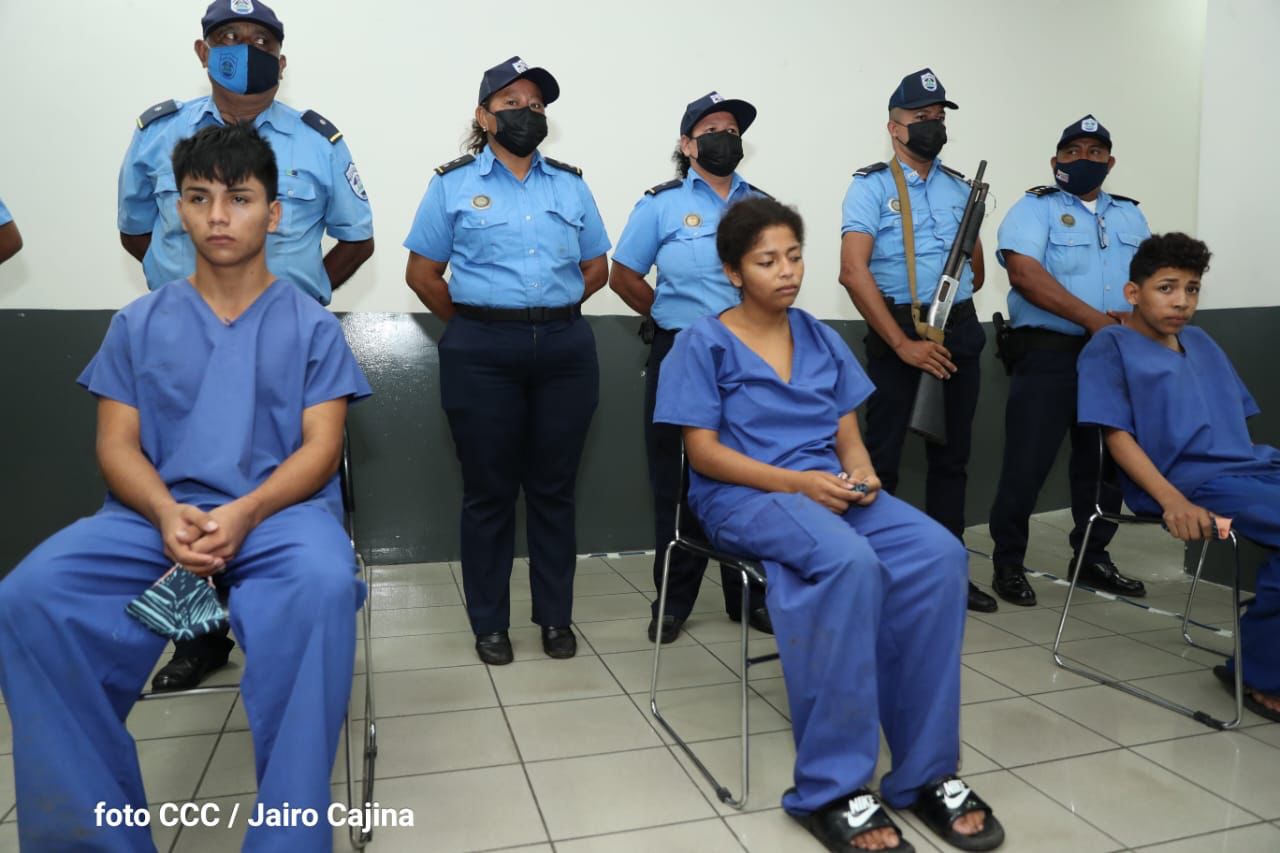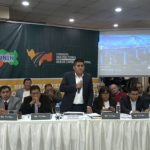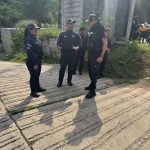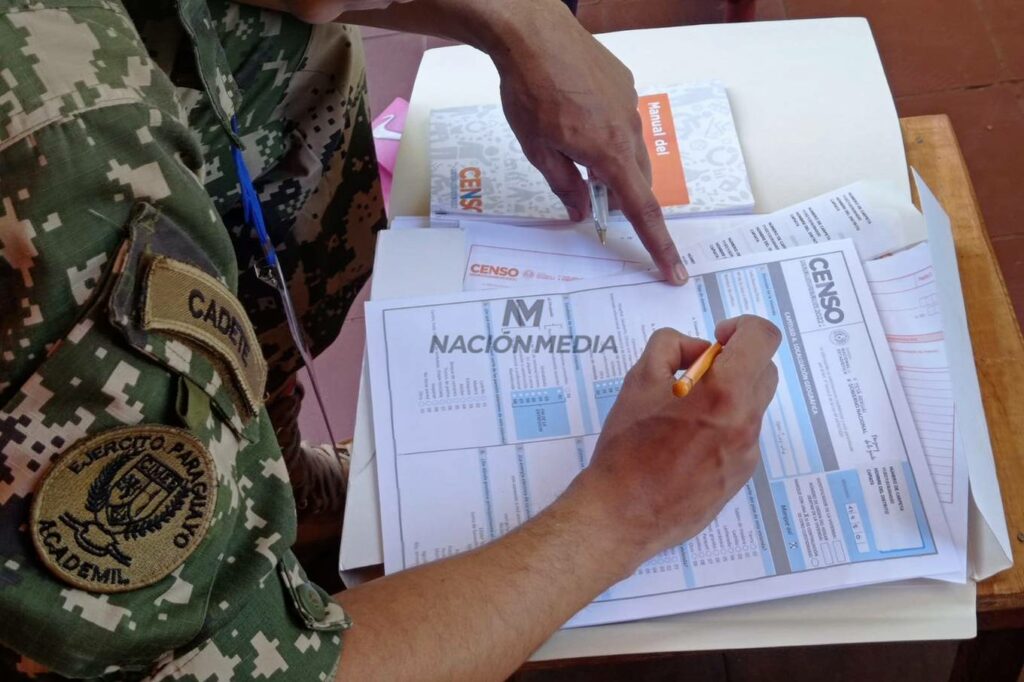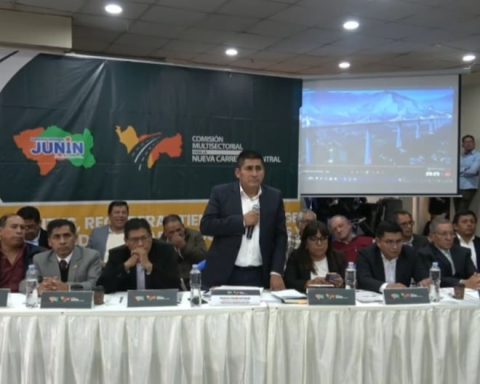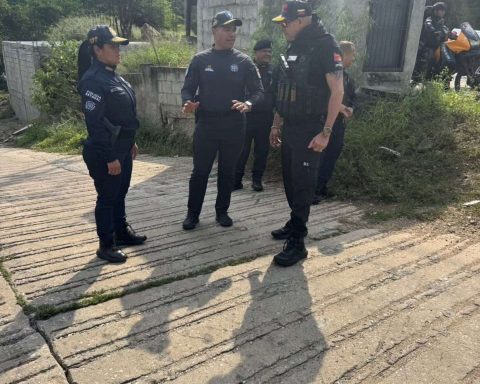This Thursday, November 10, the trial against Alfredo Antonio Lara Ortiz, 19, began. and Alison Yahoska Salgado Rugama, 18, two of the three accused of the crimes of aggravated murder and attempted rape against two sisters aged seven and 10.
The case is in charge of Judge Aleyda Irías, of the Second Court Specialized in Violence, who will assess the evidence of the Public Ministry that intends to prove the criminal responsibility of both defendants.
The third defendant for these same crimes is a 15-year-old teenager, Alison’s brother, who will be tried in a juvenile court. If found guilty, he would pay a maximum sentence of six years, as established by the Code of Childhood and Adolescence for minors who break the law.
Related news: Suspects of the murder of two girls in Ciudad Belén go to forensic assessment
The crime against the two sisters occurred last September 2 at night in Ciudad Belén, in District VI of Managua. The defendants lived five houses from where the victims resided.
The facts
Police investigations detail that the test post-mortem determined that the seven-year-old girl with initials IJU was killed by mechanical asphyxiation (suffocation), and her little sister MJU, 10 years old, by severe head trauma caused by a blunt object and had green ecchymosis in the pubic region.
The lifeless bodies of the girls were found in a vacant lot in Ciudad Belén on Monday, September 5. A multicolored cloth mattress, strips of white cloth, a piece of white duplex wire, and body fluid samples were collected as evidence at the site. The witnesses report that the three alleged criminals washed the house in the morning hours of the day after the disappearance of the minors.
The crime was committed in the home of the alleged femicides, where a criminalistics report was carried out that revealed the presence of human blood in the living room and in the adolescent’s bedroom. A piece of block and a piece of blue towel used to commit the crime were also found in the bedroom, said the police part.
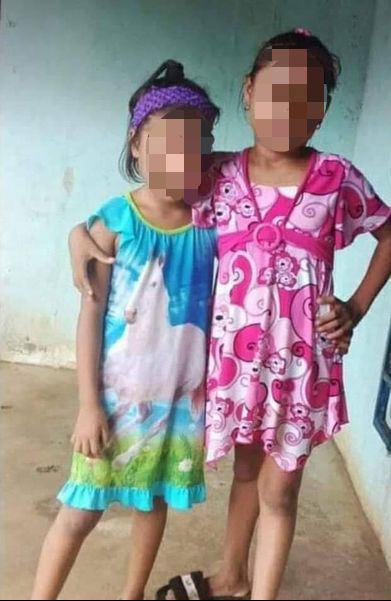
The victims left their home after a 10-year-old neighbor came looking for them to go to a vigil. The mother denied them permission, closed the door and went to sleep. When she woke up two hours later, she realized that her daughters were not at home, so she went to look for them at the vigil that was being held a block away, around 10:30 at night. She did not find them and returned to the house.
At about one in the morning, he went to look for them again at the vigil until the activity ended; not finding them, he arrived at the house of the RCSR neighbor, where he talked with the grandmother, “who told him that the little girls were not at home and that she did not know anything about them.”
The victims had three months of having arrived in the capital. The family, of the Miskito ethnic group, is originally from the Walakitang community of Río Coco, in Wiwilí, department of Jinotega, and came to Managua in search of work. The bodies of the girls were transferred to their community with the help of the Nicaraguan Army, according to a press release released by the military body on its social networks.
